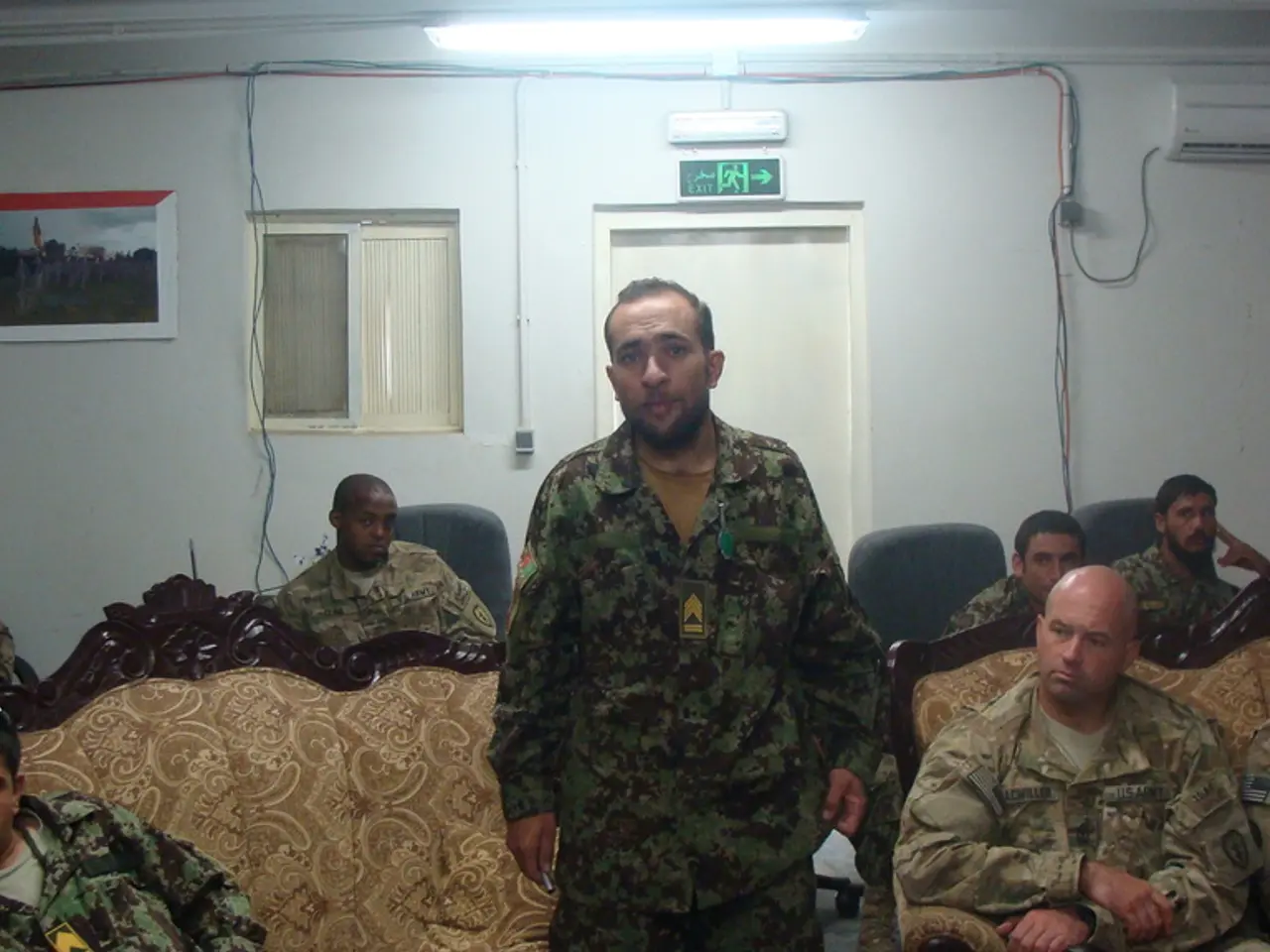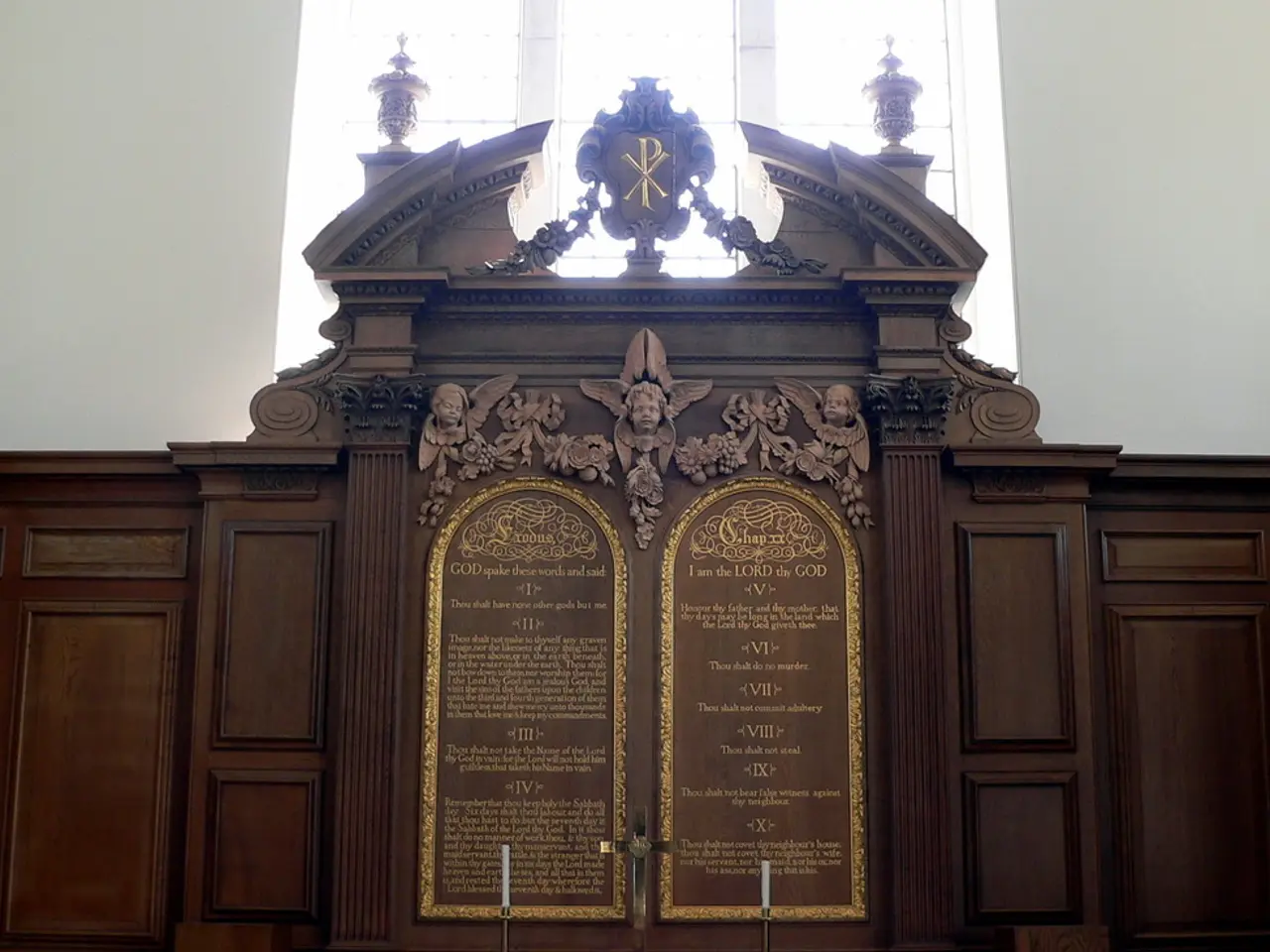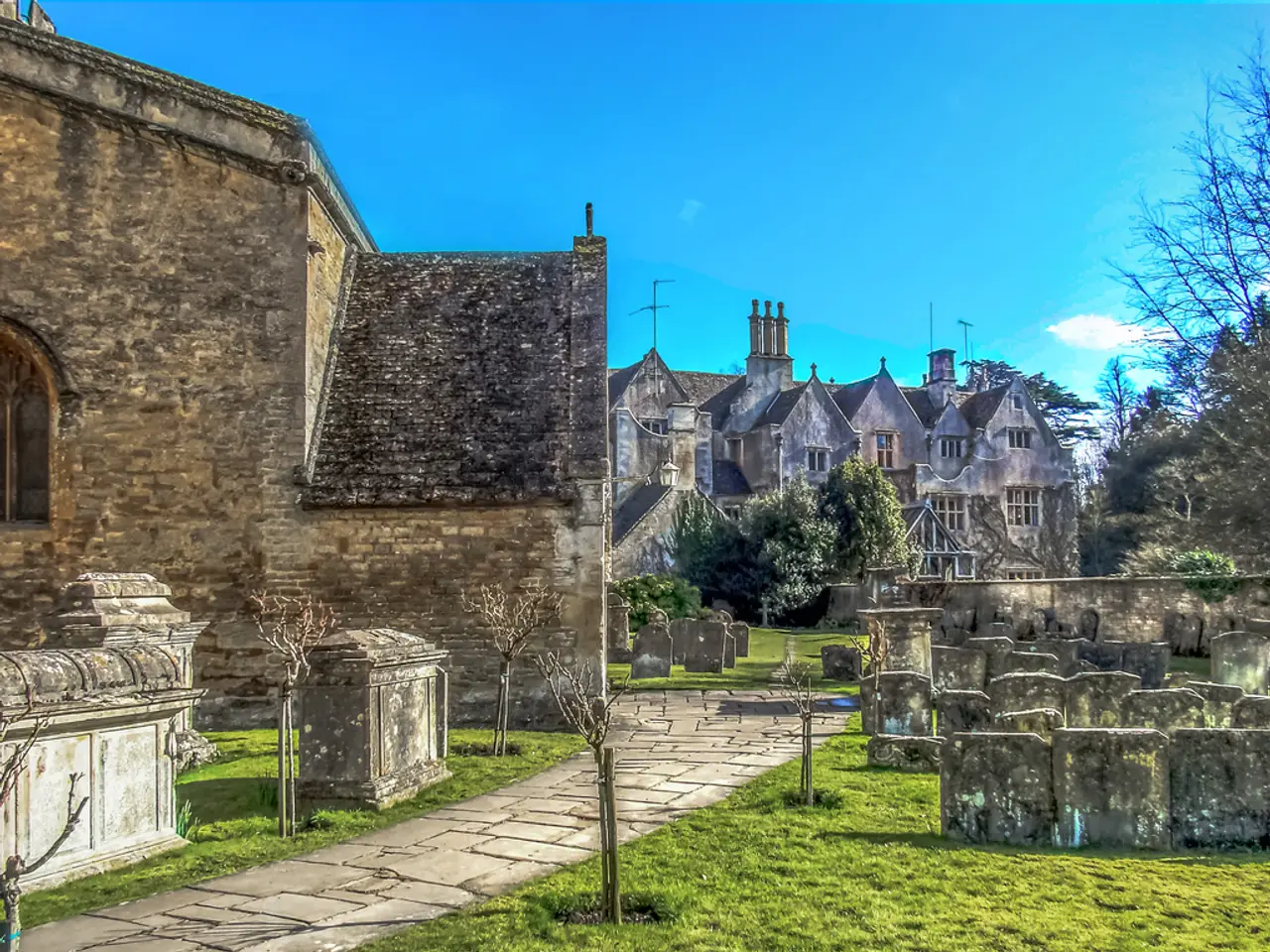Gulf region's historical practices shape the origins of a room called 'Majlis', named in Arabic for sitting area.
In the heart of Arab societies, particularly in the Gulf region, the majlis stands as a symbol of tradition and community. Originating from the Arabic word 'jalasa' (to sit), this central social and cultural institution has evolved over time while retaining its core functions [1][3].
The majlis, traditionally, was a space for hospitality, discussion, poetry recitation, dispute resolution, and social bonding among the Bedouin tribes [1]. It embodied values such as respect, generosity, and unity, and was instrumental in maintaining oral traditions and social order [1]. In the Bedouin society, the majlis was the venue where grievances were aired, leadership was exercised, and important community matters were debated, reflecting its role beyond a mere "sitting room" to a symbolic and functional council space [1].
With urbanization and modernization, the majlis has adapted to contemporary lifestyles while retaining its essence. Today, it is a formal reception room, often gender-segregated, furnished with carpets, low cushions, ornate coffee pots, incense burners, and dates offered to guests, enhancing the ceremonial hospitality that continues to define Arab identity and social etiquette [1][3].
Communal majlis spaces are also prevalent in modern Gulf countries, serving as local gathering spaces for weddings, condolences, and community meetings, often named after local neighborhoods [1]. These spaces preserve the communal and social significance on a larger scale.
In the UAE, the Federal National Council, commonly known as Al Majlis, carries the same name, emphasizing the significance of the majlis in the country's political and social fabric [2]. Similarly, Saudi Arabia's Majlis ash-Shura serves a similar advisory function [2].
The majlis is not just a physical space; it is a reminder that a cohesive society is built on dialogue that fosters connection and tolerance. Events in the majlis are rarely rushed, and occasions and gatherings are often advertised not by exact time, but from one prayer time to the next, emphasizing the value of patience and presence [1].
The majlis has even found its way into local television, often serving as the setting for talk shows, and on Qatar's sports broadcasting network Al Kass, football pundits sometimes hold post-match discussions in a studio styled as a majlis [1].
In recognition of its cultural importance, the majlis has been inscribed by UNESCO as part of the intangible cultural heritage of the Arab world [3]. As Arab societies continue to evolve, the majlis stands as a testament to the enduring power of tradition, dialogue, and community.
References: [1] Al Rasheed, M. (2004). The Arabian majlis: A space for social interaction. Journal of Arabian Studies, 4(1), 53-75. [2] Al-Naim, L. (2008). The Arabian majlis: A space for social interaction. Journal of Arabian Studies, 8(2), 91-108. [3] UNESCO. (2013). Arabian majlis: A space for social interaction. Retrieved from http://www.unesco.org/culture/intangible-heritage/index.php?PG=00011&RL=00002
- Photos capturing the traditional majlis in Saudi Arabia often show a decorative space adorned with carpets, ornate coffee pots, incense burners, and low cushions arranged around a central focal point.
- The UAE's news channels sometimes feature talk shows filmed in a studio designed to emulate a majlis, mirroring the cultural significance of this social institution.
- In Qatar, sports broadcasting network Al Kass incorporates the majlis setting for post-match discussions among football pundits, reflecting the institution's representation of thoughtful conversation and unity.
- During travel to home-and-garden exhibitions in the Gulf region, visitors may come across replicas of majlis furniture as a nod to the region's rich cultural heritage, serving as a reminder of the institution's enduring impact on lifestyle evolved from those traditional societies.
- In a world where dialogue and community are increasingly crucial, the majlis in Gulf countries offers a sanctuary for extensive conversation, symbolizing traditional values of respect, generosity, and unity that extend beyond the boundaries of individual homes.




